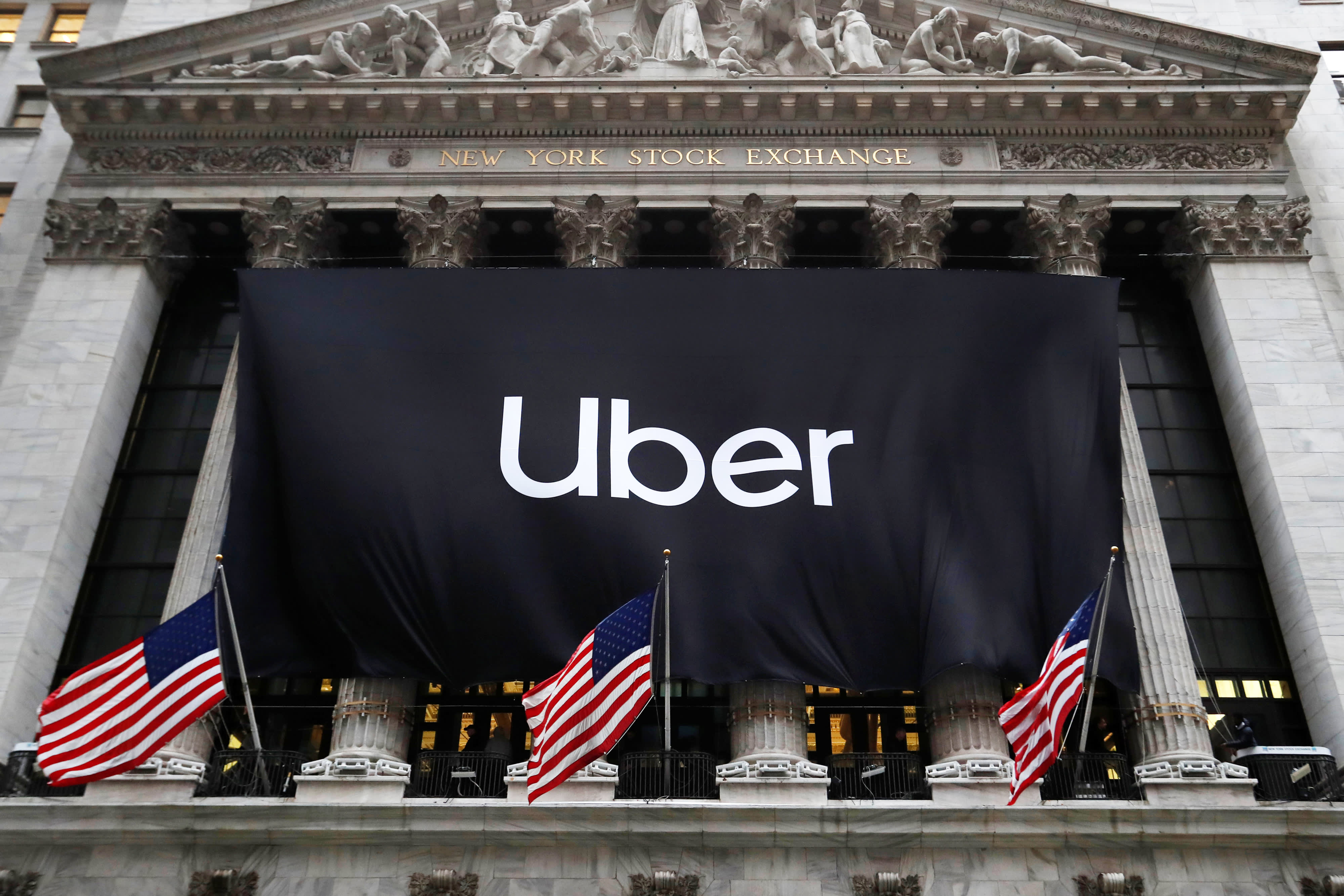This post was originally published on this site

A banner announcing the IPO of Uber Technologies hangs outside the New York Stock Exchange, May 10, 2019.
Andrew Kelly | Reuters
Insider selling is likely to keep Uber shares under pressure for the rest of November following the expiration of the stock’s lockup period, according to Bank of America Merrill Lynch analysis.
Wall Street expects a slow-burn decline over the next several weeks given the large number of private investors and venture capitalists that are still in the money, wrote analyst Justin Post.
“The consensus view seems to be for selling pressure post lockup that lasts a few months,” Post said in a note to clients. “We think lock up related selling will likely remain a headwind in November.”
Post said Bank of America’s analysis showed that Uber’s decline is consistent with its recent basket of internet IPOs that declined 2.3% on average on the day of lockup expiration. He added that stocks under BofA coverage, in general, performed better in the second six months than the first six months after a company’s IPO.
“In our recent lockup performance note, we created an equal-weighted basket of BofAML Internet IPOs to analyze price performance during the lockup period,” Post wrote. “We found that our basket avg. declined 2% on the day of lockup
expiration, which would imply that UBER’s stock decline today was consistent with other IPO stocks, though a little more severe.”
The analyst’s note came after the company’s lockup agreement expired on Wednesday, when insiders for the first time since Uber’s IPO in May were able to sell the stock. The stock slid 3.85% by the closing bell, paring losses as steep as 8.7% earlier in the Wednesday session. The swoon resulted in a record intraday low of $25.58.
“In a positive case scenario, Uber may be oversold with a basket of 2019 IPOs as the Street has lowered its risk tolerance in 2019, and risk appetite could return in 2020,” Post wrote. “Overall, we think moving past the lock up expiration date alleviates some concerns of a big future selloff, but we continue to expect new supply to hit the market.”
CEO Dara Khosrowshahi acknowledged on Wednesday that his company has felt the impact of a diminished appetite for risk among private and public investors. “Appetite for the unknown and high risk has gone down,” he said from the New York Times DealBook conference.
But he said the more sober market has “forced Uber to perform better,” as evidenced by the company’s announcement that it expects to turn an EBITDA profit in 2021. Uber reported an eye-popping $5.2 billion loss in the second quarter in what Khosrowshahi deemed a “once-in-a-lifetime” hit as he tries to steer it toward profitability.
But while analyst Post noted that Uber could continue to see downside throughout the rest of the month, the analyst was more positive on the equity in the longer term. Bank of America has a buy rating on shares of Uber as well as a $44 price target, which implies more than 60% upside over the next 12 months.
Bank of America’s analysis of extended performance “suggests stocks can perform after lock up expiration dates despite these concerns,” Post said of Uber’s recent declines. “Overall, we think moving past the lock up expiration date alleviates some concerns of a big future selloff.”




